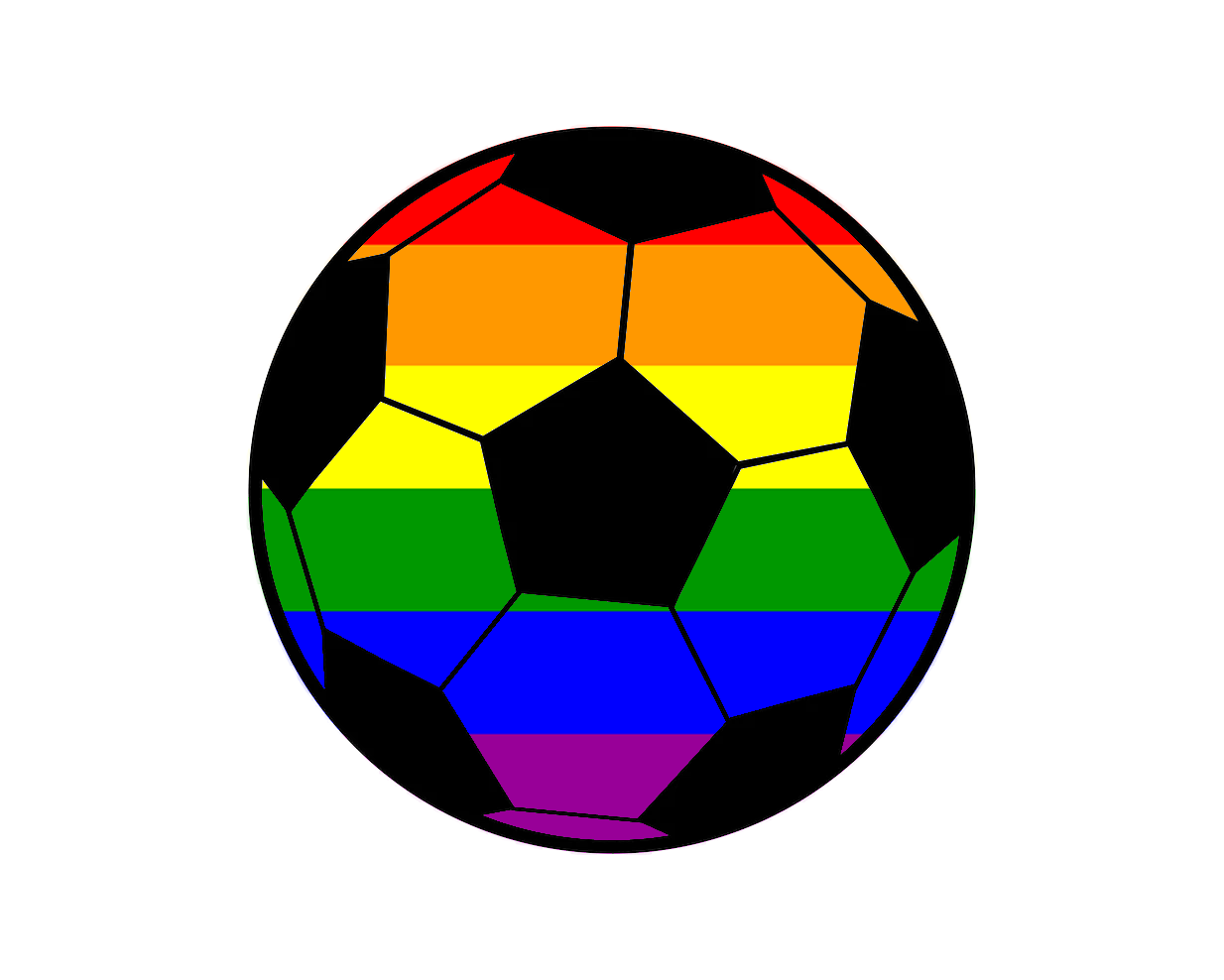Graphic by Rainer Lee/OutWrite
This article was edited on September 8, 2023 at 5:05 p.m. PT to add an Editor’s Note.
Editor’s Note: We choose not to refer to the 2023 World Cup as the Women’s World Cup in support of non-binary players and gender equality in sports.
In late June, eight armband designs were revealed that 2023 FIFA World Cup players could choose to wear on the pitch, including “Unite For Indigenous Peoples,” in partnership with United Nations Human Rights, and “Unite For Ending Violence Against Women,” in partnership with UN Women. However, despite the tournament’s theme of “Football Unites the World,” FIFA banned the “OneLove” armband or any armbands including Pride Flag imagery. This is ostensibly without reason; unlike Qatar which hosted the 2022 World Cup, the 2023 host countries Australia and New Zealand don’t criminalize LGBTQ+ people. Players receive a yellow card — a warning that could bar future participation — for wearing rainbow armbands, as was the case at the 2022 World Cup in Qatar.
These armbands have long been a way for players to use their platform on the field to show support for a cause they believe in and remain visible as LGBTQ+ folks themselves. Wearing the armbands is not only an act of support for the community but also an act of resistance against the people and organizations who want to silence their existence. With 13% of players in the 2023 tournament out as LGBTQ+, it’s more important than ever for athletes to be able to express their pride and support by fighting for a reality where LGBTQ+ people can exist without fear. Knowing this, many players took matters into their own hands.
For example, New Zealand captain Ali Riley, who also plays for LA’s Angel City Football Club (ACFC), painted her nails the color of the Progress Pride Flag. Riley was praised by ACFC owner Jennifer Garner for her show of support and expressed to CNN Sports that she “would be honored to wear a rainbow armband” if it were allowed.
South African player Thembi Kgatlana, who also plays for Racing Louisville Football Club, a National Women’s Soccer League (NWSL) team based in Louisville, Kentucky, sprayed the bottom of her undercut rainbow to “represent all the people that are part of the LGBTQ+ and cannot talk while in countries where they’re oppressed.” Both affirmations garnered an outpouring of support from fans around the world, and provoked criticism toward FIFA for the ban on rainbow armbands.
During the match between England and Haiti, Suncorp Stadium in Brisbane had a rainbow light show at halftime about which one fan posted, “FIFA may have banned One Love but they can’t ban gay lights.”
This World Cup had a significant LGBTQ+ following, with some fans on TikTok posting “queer moments” and “cross-team romances.” One such fan is TikTok creator Jackie J, who does queer-focused sports commentary on everything from the World Air Guitar Championship to the 2023 World Cup. At the beginning of the tournament, she posted a powerpoint titled “Why You, a Gay Person, Should Watch the 2023 World Cup,” which led to comments such as “lowkey this convinced me,” “CROSS-TEAM ROMANCES?? OH MY GOD I’M SOLD,” and “I’ve never enjoyed playing or watching soccer…But you sold me, I’m 100% in.” It seems that many watched women’s soccer for the first time, despite inconvenient time zone differences as well as the US Women’s National Team (USWNT) being eliminated early on in the knockout stage of the tournament. According to Fox Sports, group stage matches had a record average of 4.35 million views, which is an 11% increase from the 2019 World Cup where the USWNT team took home their second consecutive win.
Women and non-binary/gender expansive soccer players have a brighter spotlight on them than ever before, which is why it’s especially important to give athletes the freedom to use their platforms to support LGBTQ+ rights and express their pride as members of the community. In light of this ban, it’s more important than ever for LGBTQ+ players on the world stage to continue to exert influence beyond the pitch and show their fans that they cannot be silenced by FIFA or anyone else.
Credits:
Author: Ava Rosenberg (She/They)
Artist: Rainer Lee (He/Him)
Copy Editors: Emma Blakely (They/She/He), Bella (She/They)

